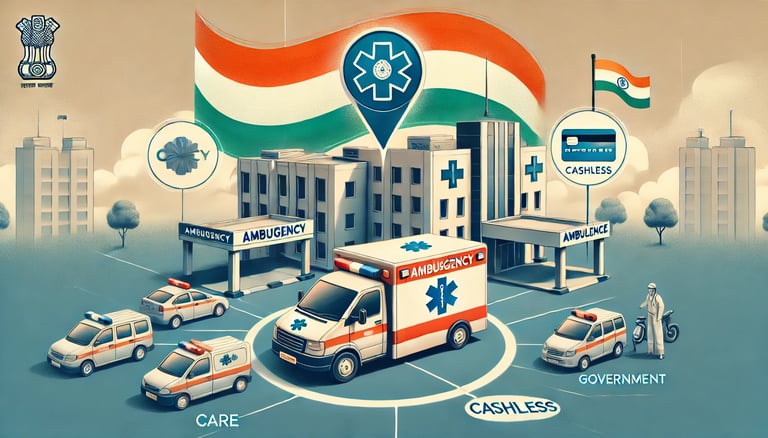Union Minister Nitin Gadkari Launches Cashless Treatment Scheme for Road Accident Victims in India
🚨 "Cashless Treatment" Scheme for Road Accident Victims 🚑 Union Minister Nitin Gadkari has announced a transformative initiative to support road accident victims across India.
POLITICS


Introduction to the Cashless Treatment Scheme
In a significant development for road safety in India, Union Minister Nitin Gadkari recently unveiled a groundbreaking initiative known as the cashless treatment scheme. This initiative aims to provide immediate medical assistance to victims of road accidents without the immediate burden of hospital expenses. Gasps of relief are expected among families affected by traffic incidents, as the scheme promises to alleviate some of the financial strains associated with emergency medical care. Union Minister Nitin Gadkari has announced a new "Cashless Treatment" scheme to provide immediate financial assistance to road accident victims across India. Under this initiative, the government will cover medical expenses of up to ₹1.5 lakh for each accident victim, applicable for up to seven days of hospitalization following the accident. To avail of the scheme, accidents must be reported to the police within 24 hours. Additionally, families of deceased victims in hit-and-run cases will receive an ex-gratia payment of ₹2 lakh.
Objectives of the Cashless Treatment Scheme
The primary objective of the cashless treatment scheme is to ensure that injured persons receive timely medical care without delay. Often, road accident victims face critical situations where every second counts. Due to the fear of substantial hospital bills, many bystanders hesitate to take victims to medical facilities. The cashless treatment scheme seeks to eliminate these concerns, allowing for swift transportation and treatment. Furthermore, this initiative is part of the broader vision of improving road safety and saving lives across the nation. This scheme highlights the government's commitment to enhancing road safety and ensuring timely medical care for accident victims. In 2024, approximately 1.8 lakh fatalities were reported due to road accidents in India, with a significant portion involving individuals aged between 18 and 34. The scheme is expected to be implemented nationwide by March 2025, following consultations with state governments and other stakeholders.
Implementation and Expected Impact
The implementation of the cashless treatment scheme involves collaboration with multiple stakeholders, including hospitals, insurance companies, and government agencies. Under this scheme, hospitals that are part of the program are expected to provide necessary treatments upfront without requiring direct payment from the victim’s family. Instead, the costs will be covered through a network of insurance arrangements, thereby facilitating seamless treatment and contributing to a more efficient healthcare response during emergencies. Experts anticipate that this scheme will not only improve survival rates among accident victims but also encourage more timely reporting and assistance in emergencies.
Conclusion
In conclusion, Union Minister Nitin Gadkari’s announcement of the cashless treatment scheme for road accident victims marks a pivotal step towards enhancing healthcare accessibility during emergencies in India. By alleviating financial concerns through prompt medical responses, the scheme will undoubtedly save lives and provide much-needed support to families during critical moments. As the nation moves forward with this initiative, it is crucial for all stakeholders—government authorities, healthcare providers, and the local populace—to collaborate effectively to make this scheme a resounding success.
